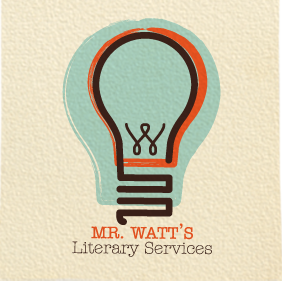Vincent Chang responds: 
The article was very informative concerning the new format of the test compared to the soon-to-be-old test. I took the SAT last year, and my response to the changes is based partially off of my experience. I think it is good that the reading/writing section no longer tests vocabulary, because I found that I never used the vocabulary under normal circumstances. I like the change towards vocabulary that is more likely to be used or other definitions of a word – it assesses the test-takers ability to understand the meaning of words in context, a product of consistent reading rather than vocabulary memorization. I am not sure of my opinion on the change to the math section; I think the broader variety is beneficial in creating a wider range of scores because it requires many more courses to be taken. I am not in favor of the revised math problem format because it requires much more reading than before. I saw a short clip somewhere (Facebook I think), which compared the number of words between the math problems of the old and new test and concluded that the math section required much more reading. I think this change takes the focus off of math and puts it onto reading comprehension and puts non-native English speakers at a disadvantage. The switch to four answers rather than five is neither good nor bad, and no longer penalizing for guessing is debatable. I think the old method of penalizing for wrong answers was good at judging how much the test-taker actually knew, but it discouraged guessing even if a choice could be eliminated. It is good that the College Board is attempting to shift the test away from being “test-prepable” and towards a better foundation.
Hi students,
Please read this insightful summary from the NY Times on the new SAT, which debuts in March, 2016!
Note that reading wide and deep is a requirement for success!
Everything You Need to Know About the New SAT
By ERIC HOOVER
OCT. 28, 2015
The new SAT will soon arrive on a wave of bold promises. The College Board has said its redesigned admission test would contain “no more mysteries.” Instead of being a riddle to solve, it would correspond with high-school curriculums and better reflect what students have learned.
The pitch sounds good. But is it true?
In the spirit of good prep, let’s review what we know so far. The new SAT, which debuts in March, will look a lot different from the current version. Instead of three sections, there will be two: Math and Evidence-Based Reading and Writing. Each will be scored on a 200-to-800 scale. There will no longer be a penalty for guessing, and the odds will be better (the number of possible answers will decrease from 5 to 4). The now-required essay will be optional.
As for content, the revamped test draws heavily from the Common Core — math and reading benchmarks adopted by most states. Those standards emphasize evidence-based interpretations of texts, vocabulary used in college and careers, and depth-over-breadth math skills. And yes, although the exam will not be the mirror image of the ACT, the two are about to become much more similar.
The changes get mixed reviews. Some testing experts who’ve studied the College Board’s sample questions describe them as more relevant and less gimmicky. Others foresee problems, especially for those who struggle with reading.
“The new SAT will align better with what kids are learning in school,” said Ned Johnson, founder of PrepMatters, a test-preparation service in Bethesda, Md., and co-author of “Conquering the SAT.” “But if you haven’t gone to a school that’s prepared you well, the test isn’t going to serve you well.”
Although the SAT is evolving, not all of its stripes are changing. Test-taking savvy is still going to make a big difference when students pick up those No. 2 pencils. So let’s take a closer look at some of the changes — and why they matter.
First, the reading section won’t be so “recondite,” because obscure words like that are disappearing. The test will no longer ask students to complete sentences. Now they will have to derive the meaning of widely used words based on context. Test takers should expect to see words that can be used in different ways (“measured,” “disposed”). Instead of recalling a definition from vocabulary flash cards, they’ll have to read prose passages carefully to choose an answer.
How should students prepare? By reading often and diving into various kinds of texts, especially nonfiction, tutors say. That’s more a long-term strategy than a quick test-prep trick. Habitual reading can also help on the writing section, which will demand prolonged concentration. To answer questions about grammar, punctuation and usage, students will have to wade through extended passages relating to history, humanities and science.
What’s true of the writing section is true of the new SAT in general: There’s much more to read. “The most fundamental change is that there are many, many more words,” said Aaron Golumbfskie, education director for PrepMatters. “If you don’t read well and happily, this test isn’t going to be your friend.”
Even the math section will require more reading, with fewer questions based on equations and more word problems. Some prompts will present the same type of real-world situations that the Common Core emphasizes — “The recommended daily calcium intake for a 20-year-old is 1,000 milligrams (mg). One cup of milk contains 299 mg….” Mr. Golumbfskie describes the math section as “tighter in focus.” The current test covers a lot of ground, with a question or two on each topic; the new one will drill down into a few key areas. Geometry is fading out. Algebra is stepping up: Prepare for linear equations and inequalities, and systems of equations in two variables.
The addition of more-advanced math, such as trigonometry, means the test will cover material from a greater number of courses. That will make it more difficult for students to take the SAT early. Some questions will require knowledge of statistics, a course relatively few students take in high school. And because one math section will prohibit the use of a calculator, students who use them in class may want to practice tackling calculations with pencil and paper.
After getting through all that math, test takers who opt to write the essay will have a much different assignment than they do today. The prompts, which will look familiar to those who’ve taken Advanced Placement English, ask for a critical response to a specific argument. In: analysis. Out: writing about your personal experiences. For example: Read excerpts from a 1967 speech by the Rev. Dr. Martin Luther King Jr. and explain how he used evidence, reasoning and/or stylistic elements to support his argument that American involvement in the Vietnam War was unjust.
As much as any other modification, the new essay captures the spirit of the new SAT, which underscores the importance of evidence. Questions throughout will require students to cite specific examples that support their answers. No longer can they get by on writing skills alone.
With all the new stuff to consider, it’s easy to forget about what’s not changing. At 3 hours 50 minutes (with the essay), the SAT is still a long, exhausting test. Besides measuring what students have learned, it will measure how they perform under pressure in a high-stakes situation — just like the old model.
Adam Ingersoll, a founder of Compass Education Group, a California test-prep service, said the College Board has made the SAT more resistant to the beat-the-test strategies his industry is known for teaching: “The mysteriousness of the test — they are actively trying to bleed that out.”
But maybe not completely. While poring over sample questions, Mr. Ingersoll spotted the same “trap doors” — questions designed to distract or confuse and to enhance the test’s difficulty — that he finds in the current version.
Colleges use the SAT to sort applicants, and a wide distribution of scores helps them do that. “You can’t have all students getting a 750,” Mr. Ingersoll said. “It needs to be a benchmark of students’ achievement, but that is at odds with selective colleges’ need to have a test that sorts and ranks. These quirks and trap doors make the test perform the way it needs to.”
So the big question burning up the web: Which version should I take? The answer could come down to timing. Students have just three more chances to take the current SAT — the last testing date is Jan. 23.
One advantage of sticking with the current version: It’s a known quantity, and plenty of review materials exist. Those who were happy with their PSAT scores might want to take the soon-to-be-old SAT, which would look familiar to them. “There’s not a test-prep tutor anywhere who could look a family in the eye and say, ‘We can do as good a job for you on the new SAT this year,’ ” Mr. Ingersoll said.
Most students take the SAT for the first time in spring of their junior year. Those who don’t want to rush might decide that the new test, though less familiar, fits their schedule better. But remember this: The first cohort to take the new SAT, in March, won’t get their scores until after the next test date, in May. That’s about double the current wait time.
The second question everyone is asking: Is the new test harder? No, several test preppers insist, though some students might stumble over the longer reading passages, the deeper dive into math and questions that require multiple steps to reach an answer. Those concerns could drive many students to take the old test — or the ACT.
Some expect that the new SAT will be even more challenging for the disadvantaged. By weaving more tightly into high-school curriculum, the test would seem to best serve students at high-performing schools, with the strong teachers who prepare them for state standards, as well as affluent students with access to test prep.
“There’s a new body style on the Chevrolet, but it has zero to do with performance — the engine’s the same,” said Jay Rosner, the Princeton Review Foundation’s executive director, who tutors low-income and underrepresented minority students. “It’s going to generate the same hierarchy of scores that exists now.”
Eric Hoover is a senior writer covering admissions at The Chronicle of Higher Education.

